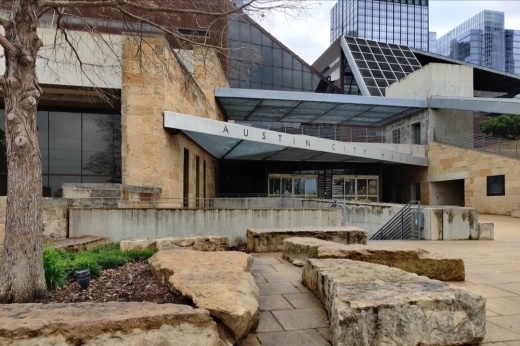During the council meeting, many residents showed up to voice their dissatisfaction with many areas of civic disaster response this month, including the operations of Austin Energy, communications from the city, and the rollout of shelter space and other resources for those in need.
Council's meeting was also headlined by debate over a new contract with the city's police union and how that decision plays into an upcoming election over two police oversight proposals. No action was taken on the contract issue, and officials will likely meet next week to select a path forward.
Pending a specially called meeting to take up that issue, council will next meet for a work session Feb. 21 and a voting session Feb. 23.
Austin Energy review
Scrutiny of the city-owned electric utility following the extensive power outages brought on by last week's weather will continue through the coming months, beginning with a council-ordered audit of Austin Energy's vegetation management program.
The audit was proposed by District 6 Council Member Mackenzie Kelly in the aftermath of the storm; she said at the time the review was needed to provide answers to constituents related to the weather event.
“Our constituents are frustrated, and we're frustrated. Constituents have been demanding that we take some form of action now and not later related to Austin Energy. This is why I feel this important item should be taken up today,” Kelly said ahead of council's Feb. 9 vote.
Kelly's resolution ended up passing with an edit proposed by District 5 Council Member Ryan Alter that narrowed the scope of the audit. The city auditor's analysis will cover only the utility tree trimming program with language that would have led to a broader review of AE's storm response overall removed.
Alter and other council members said they supported that change to allow AE's own after-action reporting process to play out. Council is expected to question AE further in meetings through the coming weeks.
Emergency shelter improvements
Austin's operation of crisis shelters is another aspect of civic emergency management to come under scrutiny in recent months, and council voted to push for further planning in that area Feb. 9. The action comes two months after the release of a city audit finding multiple flaws with Austin's shelter system.
Another Kelly proposal will see city leadership engage with community stakeholders and consider ways to improve shelters used by residents without a place to stay in harsh weather, most often those experiencing homelessness.
“It’s our responsibility to ensure that we do everything we can to keep our community safe. By providing access to extreme weather shelters we can help protect our community and reduce the impact of natural disasters on vulnerable populations,” Kelly said.
Items noted in the measure could adjust shelter operating hours, provide more advance notification of shelter opportunities, assist families registering for shelter and provide stability for the unhoused during weather events. The proposal passed with amendments from several more council members.
Cleanup continues
As part of their consent agenda, officials also signed off on temporary changes to city rules designed to assist residents recovering from the storm.
One approved ordinance allows emergency electrical repairs to proceed without requiring a standard permitting process, while another waives all permitting or development fees tied to emergency structural repairs taken on as a result of the weather event.
“Our priority is to ensure our community can recover safely and quickly from this winter storm,” said José Roig, interim director of the Austin Development Services Department, in a statement. “We want the community to know we're here to help through the recovery and thank the city manager and the City Council for taking quick action to support Austinites in need.”
More information on permitting for emergency repairs is available from DSD.
Officials also approved a one-month extension to the local disaster declaration signed last week by Mayor Kirk Watson.





